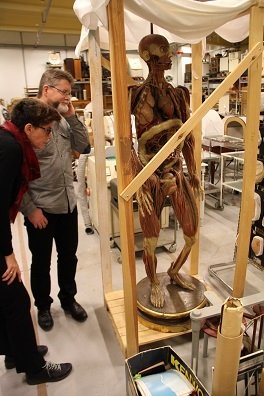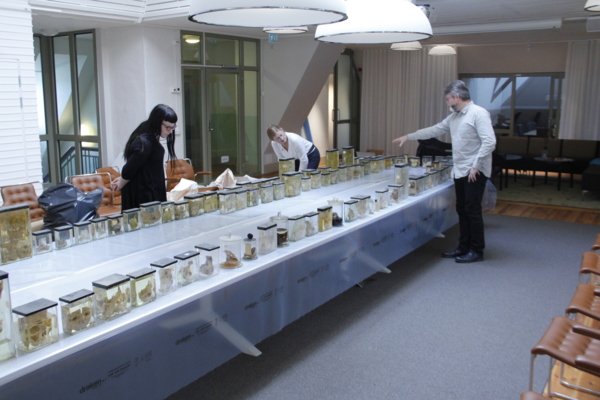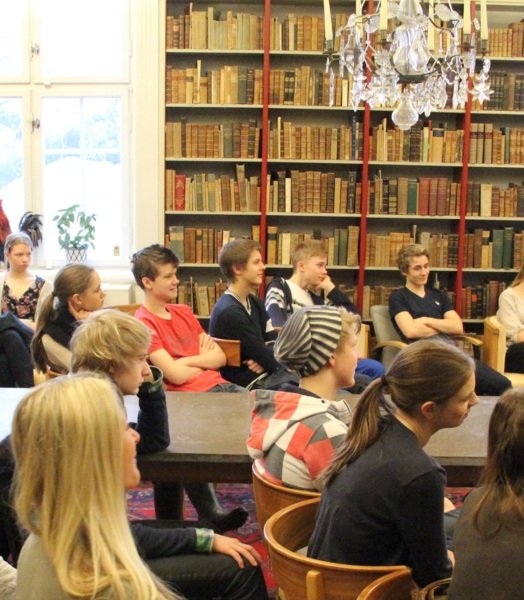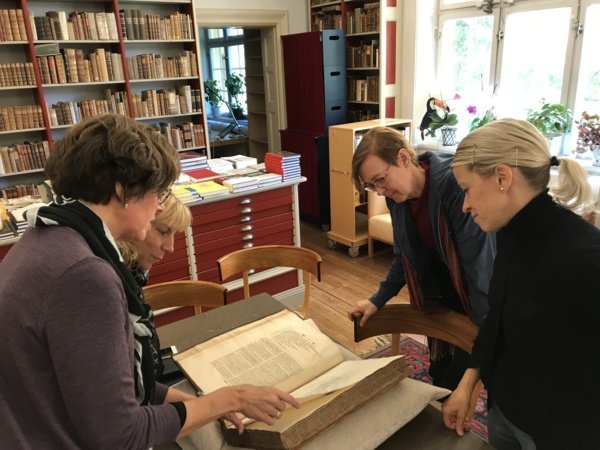Medical History and Heritage
Medical History and Heritage is responsible for collecting and preserving the cultural heritage of Karolinska Institutet, and to make this unique heritage available and accessible to scholars, the staff at KI and the general public. Two units, Research and Collections and Hagstromer Library, work to collect and preserve experimental equipment, artifacts, rare books and documents from Karolinska Institutet. Visiting scholars and students frequently work with our collections.

To collect
Karolinska Institutet continuously generate historically relevant material. Equipment and machines used by the scientists at Karolinska constitute important ways to gain in-depth knowledge about the material conditions and limitations of medical science. Documentation such as notes and protocols tell of collaborations, networking and the implementation of ideas. Collections of human remains illuminate the complex relations between medical science and society at large. Medical History and Heritage has the ambition to give the historians of today - and toworrow - the best possible resources for exploring the history of Karolinska Institutet. Do you have material that may be important? Contact Us!

To preserve
Artefacts and documents require space and preserving efforts in order not to be damaged, destroyed or lost. One of the key responsibilities of Medical History and Heritage is to ensure that the historical collections are stored and preserved properly. Paper must be protected against moisture and pests, sensitive devices and machines need to be stored carefully to maintain long-term function. Wet and dry preparations may need re-conservation. Human remains need to be handled and stored with care and according to ethical regulations and standards. This work is one way for Karolinska Institutet to assume responsibility for its' role as one of the most influential actors within the field of medical science, historically as well as today.

Availability and accessibility
Medical History and Heritage works to make the cultural heritage of Karolinska Institutet available and accessible in a number of different ways.
- Digitalization. Like most museumsand collection holders today, the Unit is involved in a long term project of digitalizing our collections. Images and descriptions of artefacts, machines and instruments are catalogued in the database ALVIN. and several other institutions, including for Medical History and Heritage. Documents and books are catalogued in LIBRIS, which is a database run by Kungliga Biblioteket in Stockholm. When available digitally, our collections will be accessible to new audiences and simultaneously preserved online.
- Open lectures, seminars and workshops. The unit regularly arranges open lectures, seminars and workshops about our collections, the history of science and medicine and related topics.
- Exhibitions. Parts of our collections are exhibited on location at the Unit’s offices in Haga Tingshus, just outside Karolinska Institutet campus in Solna. In addition, the Unit collaborates with other museums and institutions to exhibit our collections in different contexts and places.

To create knowledge
A team of scholars who work with the collections, and on related areas of the history of medicine and science, are tied to the institution of and Heritage work together to catalogue and list the expanding collections. The Unit is also enrolled in the organisation of witness seminars. A witness seminar is a documentary seminar where key actors in historically interesting events share and discuss their memories with the help of a historian. Oral history hereby provides a way to highlight and document especially important parts of the history of Karolinska Institutet. Visiting scholars and students also frequently come to work with our collections on site at the library. Do you wish to work with our collections? Contact us!
Staff
Contact
Medical History and Heritage
Hagstromer Library
Haga Tingshus
Annerovägen 12
169 70 Solna
Tel: +46 8 524 868 28
